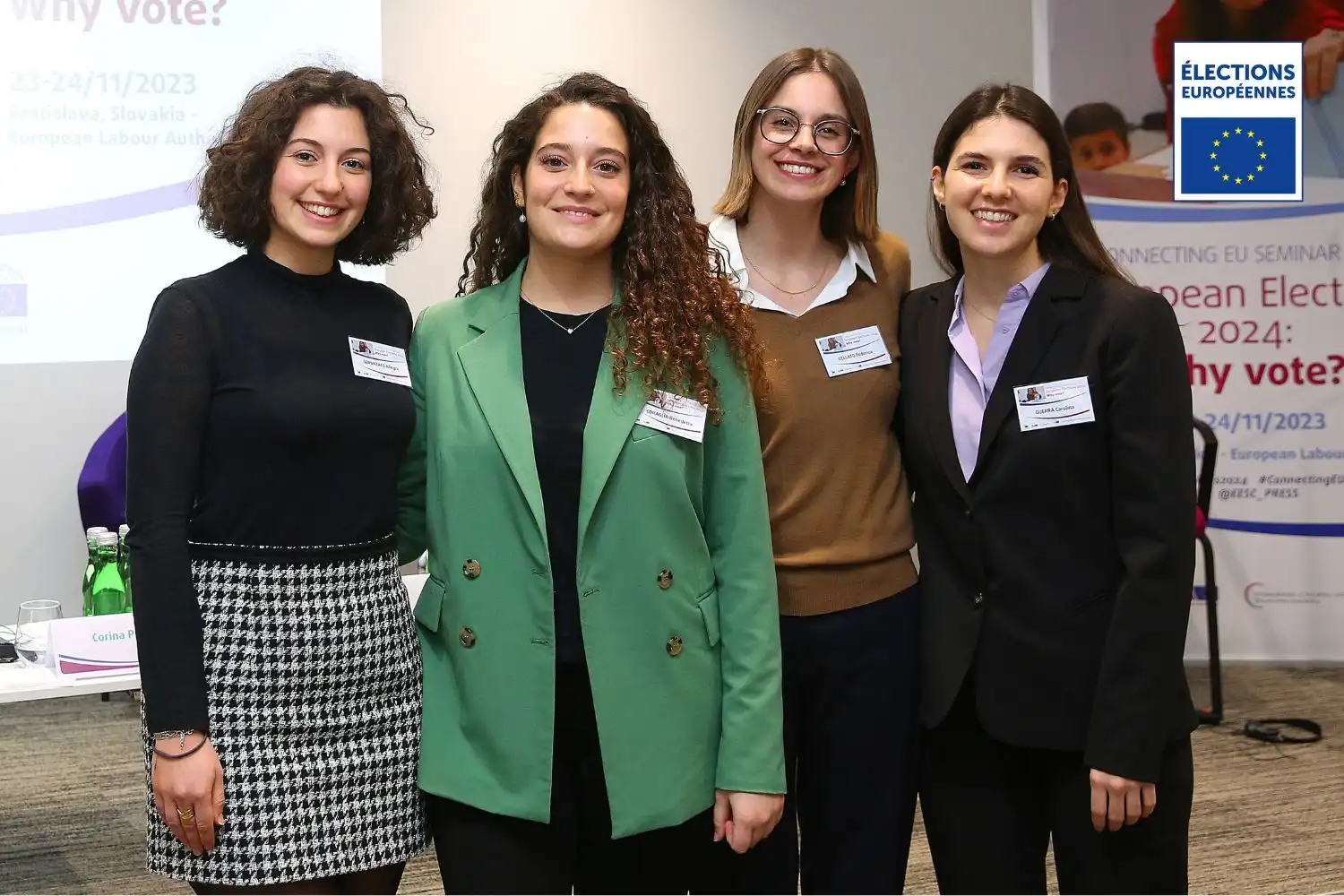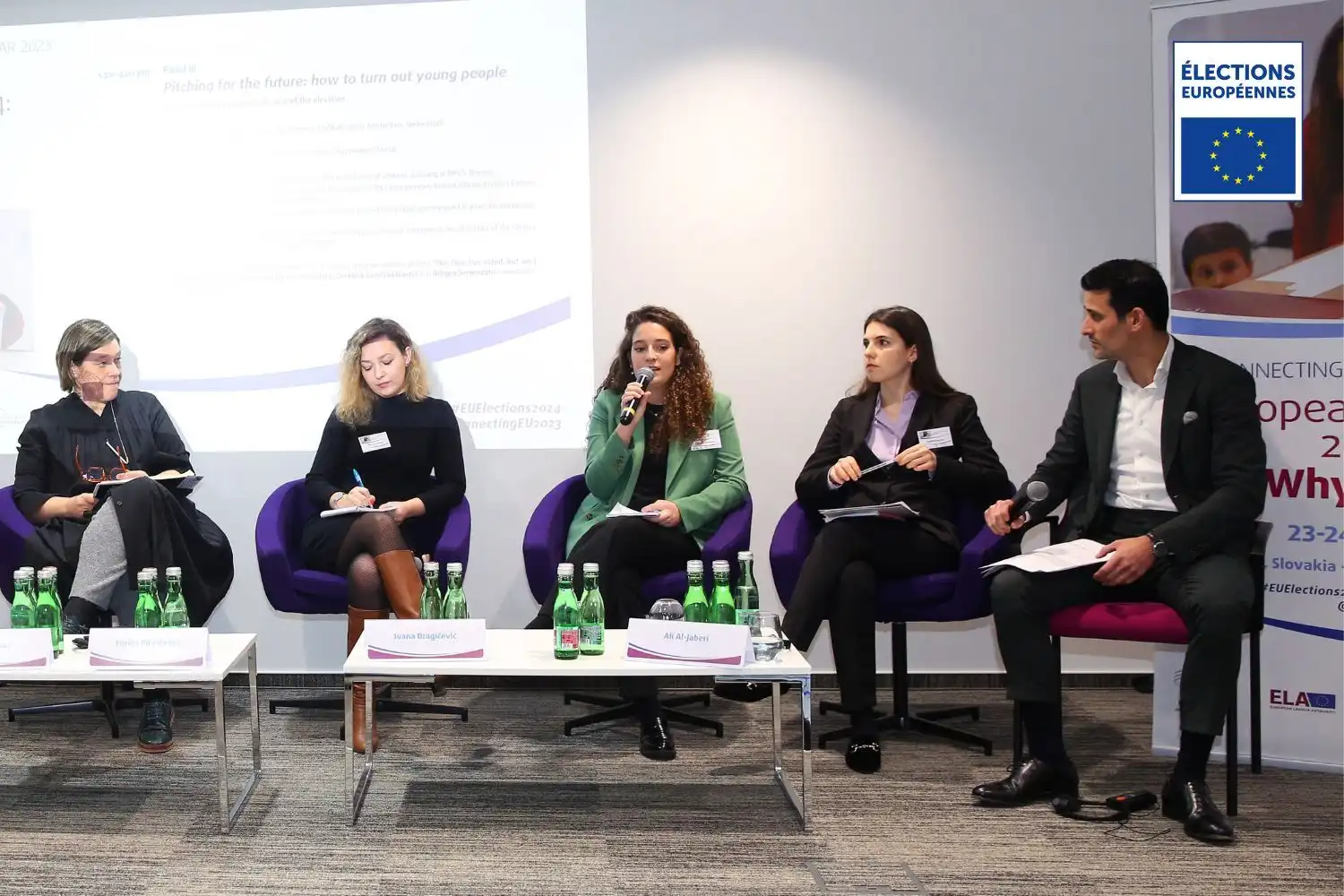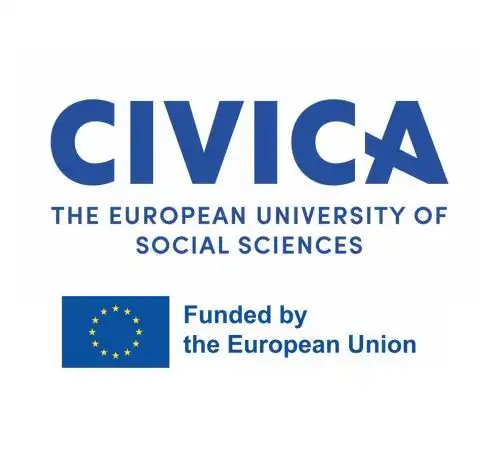Home>EU Elections: Two Students Advocate for Youth Quotas at the European Parliament
04.04.2024
EU Elections: Two Students Advocate for Youth Quotas at the European Parliament
Benedetta Coraglia and Allegra Semenzato are both students from the Dual Master's Degree in Politics and Public Policy cocreated by Sciences Po's School of Public Affairs and Bocconi University. They graduated in July 2023 respectively from the Master in Public Policy and the Master in European Affairs and both chose the specialisation in energy, environment, and sustainability.
Studying at two founding universities of CIVICA, the European University of Social Sciences, allowed them to take part in the futurEU competition, which they won. The proposal they crafted to foster European youth vote through youth quotas at the European Parliament made such an impact that they were invited this academic year to attend the European Economic and Social Committee event and present their project.
What was the policy brief you created that won the second edition of the CIVICA FuturEU competition?
The futurEU initiative is a student competition sponsored by the CIVICA alliance of EU universities.
As part of the second edition of the competition (in 2022), teams of 3 to 4 students had to participate in a policy exercise on the future of the European Union. The teams were tasked to propose bold and visionary policies for young Europeans and argue why these would make the EU more responsive and appealing to their needs. Our team was made of us two, plus Carolina Guerra and Federica Bellato from Bocconi University.
After submitting our proposal, we were invited by experts of the Jacques Delors Centre at the Hertie School in Berlin to defend our ideas during the oral rounds of the futurEU competition with other students. We presented our policy brief titled “'This time I’ve voted', but am I represented? Addressing the underrepresentation of young Europeans through the adoption of youth quotas”. We advocated for the introduction of youth quotas in the European Parliament to reduce the gap between the percentage of young MEPs and the percentage of Europeans in the same age cohort.
The proposal was well received by the experts and, as winners of the student competition, we were invited to revise our brief under the supervision of Dr. Nicole Koenig, Mr. Sebastian Mack, Dr. Thu Nguyen and Dr. Nils Redeker and publish it on the website of the Jacques Delors Centre in November 2022.
You were invited to participate as a panellist in a European Economic and Social Committee event to present your proposal, how was this experience?
On 23 and 24 November 2023, we had the opportunity to attend and actively participate as panellists in the 2023 ConnectingEU seminar which focused on the upcoming 2024 European elections. The event took place in Bratislava and was organised by the European Economic and Social Committee, in partnership with the European Parliament and the European Labour Authority.
The four of us participated in a panel on how to turn out young people to vote and presented our futurEU initiative proposal on introducing youth quotas in the European Parliament to address youth underrepresentation.
It was an enriching experience, we felt as if our voices were being heard, as real policymakers. We were thrilled to see our proposal being positively welcomed by European Economic Social Committee members, EU representatives, partner organisations from Member States, journalists and researchers. It was an honour to listen to incredible speakers and to learn from insightful discussions on the 2024 EU elections, how to mobilise civil society and young people.
young international students, what does the European project – and its different entities such as CIVICA – mean to you? How important is youth voting for Europe?
Studying European affairs and politics sometimes makes us think that the EU is a distant reality and a technocratic institution. Experiences like the futurEU competition, the European Student Assembly and all those initiatives focused on actively engaging students and the broader European citizenship help us feel closer to the decision-making process.
As dual degree students, we have experienced the ongoing cooperation between France and Italy which has further strengthened our beliefs in the benefits of a more integrated and inclusive Europe. Towards achieving this goal, we believe that younger generations must play an active role in European policy-making, which starts from turning out to vote. By doing so, youth would signal their priorities, have their voices heard, and make a step towards reducing their underrepresentation in EU institutions.
Interested? Take part in the next futurEU competition (on 9 June 2024) and / or subscribe to the CIVICA newsletter.



